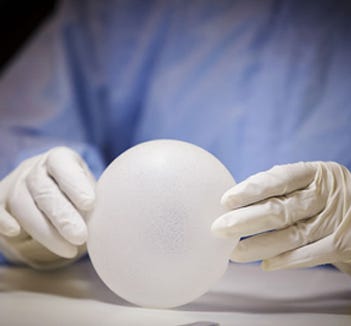After the infamous Pip breast implant scandal some five years ago, another maker of silicone implants is now under scrutiny for possible contamination of its products. Brazilian company Silimed has had its CE certificate suspended after an audit conducted by a German notified body discovered that the surfaces of some medical devices at the manufacturing plant appeared contaminated with particles. The UK's Medicine and Healthcare Products Regulatory Agency (MHRA) was alerted by its German counterpart on Sept.
September 29, 2015
After the infamous Pip breast implant scandal some five years ago, another maker of silicone implants is now under scrutiny for possible contamination of its products. Brazilian company Silimed has had its CE certificate suspended after an audit conducted by a German notified body discovered that the surfaces of some medical devices at the manufacturing plant appeared contaminated with particles. The UK's Medicine and Healthcare Products Regulatory Agency (MHRA) was alerted by its German counterpart on Sept. 18 that the notified body had temporarily suspended the distribution and marketing of all devices manufactured by Silimed, and the MHRA has since followed suit.
 Silimed is reportedly the largest maker of silicone implants in South America and the third largest in the world. Surgeons in the UK have been told to stop using implants manufactured by Silimed, which include pectoral, testicular and penile as well as breast implants, and they may have to contact patients already implanted with the devices, according to an article published by specialist law firm Leigh Day.
Silimed is reportedly the largest maker of silicone implants in South America and the third largest in the world. Surgeons in the UK have been told to stop using implants manufactured by Silimed, which include pectoral, testicular and penile as well as breast implants, and they may have to contact patients already implanted with the devices, according to an article published by specialist law firm Leigh Day.
The MHRA has issued a statement saying that it did not know whether any potentially contaminated products would have reached patients, nor how many Silimed products might be affected. "For the moment, there has been no indication that these issues would pose a threat to the implanted persons's safety," the agency added.
The Pip breast implant scandal came to light in 2010, when it was discovered that French company Poly Implant Prothèse (Pip) was not using medical-grade silicone in its implants and went to great lengths to conceal this fact from auditors. Pip President Jean-Claude Mas was sentenced to four years in prison in 2013.
At this point, we do not know the particulars of the Silimed case or, indeed, if there is any cause for concern in terms of patient safety. But in the view of Jill Paterson, a Partner at Leigh Day, it has the potential to affect a broader swathe of the population than the Pip scandal.
"Whilst this news may bring to mind the PIP breast implant scandal, the implications of this contamination are potentially much more extensive, with other products such as gastric bands and balloons involved," said Paterson. "Implants used for plastic surgery throughout the body and for general surgery, including blocks and sheets, may also be affected. The fact that these devices were used widely in NHS surgeries widens the scope of people who could potentially be affected. It is unclear at this stage what the contaminant is, if it is dangerous, or the severity of the contamination," added Paterson.
About the Author(s)
You May Also Like




